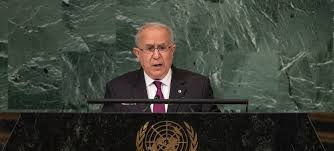Open letter to U.S. Special Envoy for Sudan and Personal Envoy of the UN
Secrete ry-General
Open letter
We sincerely thank you for your efforts to convene peace talks to res.olve the crisis that threatens Sudan and the wider region. We appreciate the efforts of all involved t‹› end this destructive war and create pathways for change for Sudan’s devastated population. We hope that talks in Geneva, Switzerland will be able to bring about constructive dialogue and to build on earlier discussions that were convened in Jeddah, Saudi Arabia.
In a spirit of openness and collegiality, Justice Africa, Sudan respectfu!lIy asks that you consider the following points when engaging in talks with the warring parties. Justice! Africa, Sudan is a civil society organization that is focused on creating a sustainable future for the c‹ountry, supporting peace and democratic processes and advocating for social justice and development. Besides providing community engagement and capacity building project for more than 20 years, we also currently fund emergency room food provisions to those who are without any other options. Building on that experience, we ask that, above all, the people of Sudan are prioritized iri any agreements made. Allied to this, we ask that any long term inclusive political process, must be o›wned by the Sudanese people themselves through representative government, rather than through ar med belligerents.
Accordingly, we kindly ask you to consider the following:
Geneva peace talks between the Sudan Armed Forces (SAF) and the Rapid Support Forces (RSF)
Over many years now, hostilities in Sudan have resulted in the proliferation of militias and other interested actors, many of whom do not have peace as their primary gc›al. We respectfully ask that in convening the talks in Geneva, strenuous efforts are made to exclude groups that will cannot exert influence to stop the current violence. We firmly believe that negotiations must only include the two main warring parties: the Sudan Armed Forces (SAF) and the Rapid Support Forces (RSF). In tandem with these issues and bearing in mind previous failures to adhere to peace agreements and civilian protection, we respectfully ask an agreement includes documented actions that involve:
1) Cessation of hostilities
2) Delivery of humanitarian assistance — In addition to the role of UN agencies and international humanitarian organisations, it is important to engage emergency rooms, local civil society organisations and services and change committees, in delivering humanitarian assistance.
3) Establishment of monitoring forces, to ensure full compliance with all the terms of the agreements.
4) Mechanisms for each party to take responsibility for the actions of its proxies and allied fighting groups. This means for SAF: Darfur armed movements, National Congress Party militias, Popular Defence Forces (friendly Forces) and Mobilizers and for the RSF: allied tribal militias (Ogada). This also means that:
i) All the aforementioned proxies must be included in any DDR process, which includes cantonment and immediate withdrawal form houses, hospitals and any civil used premises.
ii) SAF and RSF must jointly be involved in disarming any person or groups whom are not part of the security forces or the army the limiting the proliferation of ‹arms as that
represent serious threat to the public and peace and security,
5) Accountability and justice for victims of human rights violations -This means that the warring parties must accept an open transparent justice and accountability processes based on the outcome of the UN Human Rights Council Fact Finding Mission and any other national independent investigation committees. This must also include a process of reparation and compensation for victims of the mass human rights violation and crimes committed by’ both parties to the war.
6) Reform of armed forces and security sectors- The two warring parties and their proxies must accept the process of army and security reforms to ensure Sudan army and other security organs are non -partisan, non-tribal and above all, a professional fighting force that is only deployed in the interests of the entire nation.
Engagement of civil society movements and political parties in an interim arrangement
We contend that any agreement must learn from past interim periods, such as 1956, 1964 and 1985 and 2019. Agreements must also be minded to the irreconcilable tensions that occur when warring parties are part of political arrangements. This means that while the SAF and RSF may be considered in terms of military, they must not be part of interim governance arrangements. Instead, Sudanese civil and democratic forces must engage in an open dialogue so they can agr‹°e on the following:
i) The terms of the interim constitution
ii) Interim administrations, which must be composed from technocrats with no role for any military personal or political party members on the executive.
iii) An Interim government programme to include:
a) Re-establishing government institutions that have been destroyed due to the war, such as the police, judiciary, civil service etc
b) Addressing forced migration including the repatriation of IDPs and refugees
c) Rebuilding Sudan’s main economic sectors to overcome the impact of war
d) Rebuilding the service sector to include schools, hospitals and universities
e) Providing support for the private sector to overcome damages caused by the war
f) Establishing commissions to address reconciliation, the constitution and so on.


